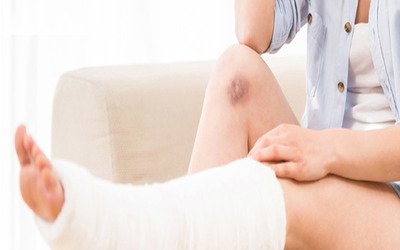Bone fractures or broken bones can occur due to any accident, fall or jerk on the joints.
[the_ad id=”6287″]
Broken bones are common among children and old age people.
Types of Bone Fractures
There are many types of fractures. Few of them are:
- Complete Fracture- In a complete fracture, the bone breaks into two or three parts
- Incomplete Fracture- In an incomplete fracture, the bone cracks but does not break all the way through.
- Open Fracture- In an open fracture, the bone breaks in such a way that its fragments come out through the skin.
- Closed Fracture- In a closed fracture, the bone doesn’t come out through the skin. However, it often causes injury to tissues around the fracture.
- Compression Fracture- Compression fracture occurs due to extreme pressure.
Symptoms of a Bone Fracture
Few signs and symptoms associated with a bone fracture are:
- Tenderness close to the fracture
- Paleness and deformity
- Pain and swelling near the fracture area
- Numbness, tingling or paralysis below the fracture
- Bruising at the area
- Weakness and inability to bear weight
- Loss of pulse
Risk Factors for a Bone Fracture
Few things that can increase the risk of bone fractures are:
- Tumors of the bone
- Irresponsible behavior that increases the risk of accident
- Weak bones
- Certain activities that carry the risk of injury
- Osteoporosis
Preventive Measures for Bone Fractures
Few things that you can do to avoid bone fractures are:
- Wear protective gear for sports
- If you have osteoporosis, avoid situations that can cause injury and always follow recommended treatment program
- Maintain a safe home environment
- Avoid drinking alcohol to avoid accidents due to unconsciousness
- Use seat belts while driving to avoid road accidents
Source:

